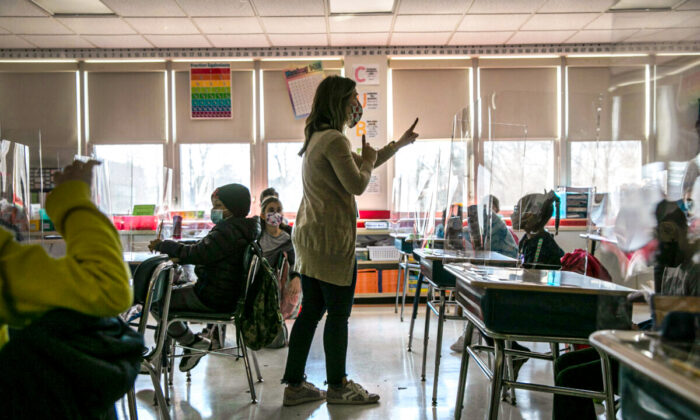State assessment reports and researchers suggest disappointment ahead of the Nation’s Report Card release early next year.
Math and reading scores across the nation continue to decline or remain stagnant nearly five years after the COVID-19 pandemic stalled classroom learning, recent state assessment results indicate.
Most states have released their annual report card summaries for the 2023–2024 academic year. One of the latest,
New York’s, shows that the average reading/English Language Arts among public school students in third through eighth grade was 46 percent, a 2 percent drop from the year prior. In math, the average proficiency rate for the same grade levels was 54 percent, a 2 percent increase from the 2022–2023 academic year.
The New York Department of Education defines proficiency as competency over challenging subject matter. Its recent report card doesn’t include chronic absenteeism and high school graduation rates, but last year’s report listed those as 26.4 percent and 88.3 percent, respectively.
JP O’Hare, speaking for New York’s Department of Education, said the state report card is only one of multiple measures of learning and “cannot tell the whole story of student proficiency.”
“Results can be used to determine whether there is a need for additional support in school and can also help teachers in their instructional planning. Parents may use the results of the state assessments to monitor their child’s learning and inform conversations with their child’s teacher about how their child is progressing in their grade level,” O’Hare said in a
Nov. 14 statement.
“Across California, we’re seeing that when we provide for the most vulnerable in our communities, all students reap the rewards. Our migrant students and socioeconomically disadvantaged students show marked improvements in consistent school attendance and graduation rates, reflecting the dedication of our educators and students alike,” Superintendent of Public Instruction Tony Thurmond said in a
Nov. 21 statement.
“We never caught up,” Karyn Lewis, NWEA vice president of research and policy partnerships, told The Epoch Times. “We have a compounding debt situation.”
“They need to communicate the level of need,” she said.



